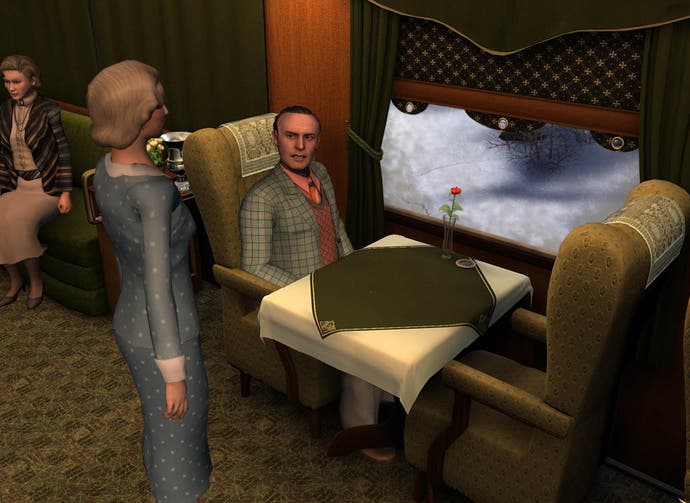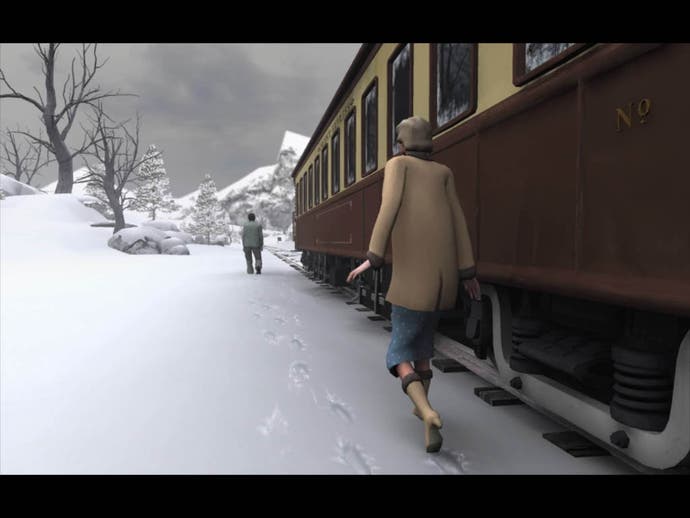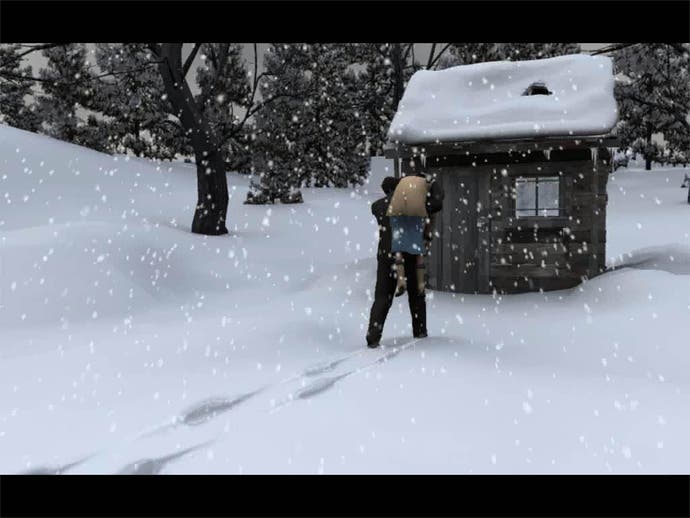Murder on the Orient Express
Super-sloth.
Murder on the Orient Express is, of course, a famous novel by Agatha Christie. Probably her most famous, in fact. As with many acclaimed authors, everyone knows the big name stories, and yet there are often more obscure books penned which can be the true classics. I'll bet you've never read the lesser known GBH on the Gatwick Express, or experienced the powerfully woven narrative of Attempted Fare Dodging on the Stirling to Glasgow Sprinter.
This point and click murder-mystery is The Adventure Company's second PC adaptation of a Christie novel, the first being And Then There Were None. Murder on the Orient Express follows the same design template in that it sticks quite closely to the book's plot and characters, but with some notable differences and tweaks to the ending, so that those familiar with the tale don't know everything from the outset.

Last year's And Then There Were None certainly had its problems, the biggest of which was the lack of any real meat to the dialogue or questioning process. Unfortunately, Murder carries on the bad work in this respect. Every conversation you have with a suspect merely involves clicking on all the options and listening. There's no branching dialogue tree, you can't offend or really interact with people in any meaningful way, it doesn't even matter what order you ask the questions in. You may as well have a cut-scene play the relevant dialogue each time you approach a character.
It's not even Poirot doing the interrogating, disappointingly, as the player takes the role of an added character, a female representative of the train company called Antoinette Marceau. Poirot is present, but laid up in bed with an injury - basically he's only there to give out advice when needed (how much help you get depends on the difficulty level selected). The rest of the time he spends in his cabin waxing his moustache and polishing his sprout collection.

He's quite wise to do so, as it turns out, because the legwork involved in this particular detective story is tediously sluggish. It goes a little something like this. Visit Cabin #1. Open occupant's luggage. Take item. Examine bed-side table. Nothing. Look out window. Nothing. Open cupboard. Ooh look, a pair of suede brogues. Size 9 I think. Can't pick them up. Leave.
Visit Cabin #2. Open occupant's luggage. Take item. Examine bed-side table. Nothing. Look out of the window. Nothing. Open cupboard. Ooh look, a pair of pink high-heels. Size 5 I think. Can't pick them up. Leave. Visit Cabin #3. Open occupant's - just kidding. You get the idea, and this repetitive theme is carried throughout the adventure, whether searching for clues or questioning suspects. It's all very linear too - if the game wants you to go and chat with Poirot in order to advance the plot, and you attempt to wander anywhere but towards his cabin, you'll be firmly told something like "I'm not wasting time going that way." This approach cuts down on the blundering about hopelessly factor, true, but only accentuates the artificial feel of the whole experience.

However, not everything The Adventure Company has tried here fails. The graphics are very tastefully done, with the Orient Express convincingly rendered in all its opulence, and the voice acting is just as polished. The plot is compelling in itself, if you haven't read the Christie classic at any rate, but it loses a lot in the translation to the PC simply because the conversation paths are so banal and repetitive throughout.
The puzzles you face are generally logical and commendably so, although some are simplistic to the point of verging on the trivial. As you collect evidence and listen to conversations, notes are automatically kept for you, so there's no need to be scribbling every character's alibi on little scraps of paper - a thoughtful and convenient touch.
But all this means little, really, when the game becomes a painfully slow and suffocating linear trudge through every single cabin on the train - for the fifth time - in an effort to find everyone and get hold of their passports for investigation purposes, while asking all nineteen passengers and crew practically the exact same set of twenty odd questions. I know the game's set on board a famous train, but was there really any need for the developer to stick the adventure itself on such rigid rails? For the next Agatha outing, let's have less detective-by-numbers, more life in the environment, and some true interactivity with the characters.







